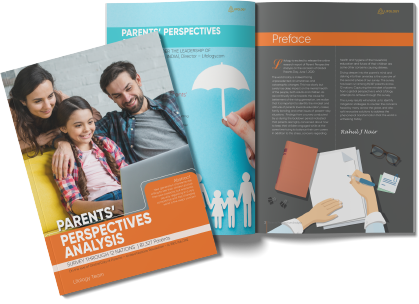How can we give our children a personalized learning experience? Today this is one question that troubles educators and parents alike. Let me tell you the story of one of my students. Paul, one of the best students from higher secondary class, came up with a suggestion one day. He told me, “Ma’am, I don’t think our syllabus is adequate to cater to the needs of students who are going out and in great need of using the English language in the real world.” He suggested that I start a class book club where students can read and experience good books and develop their language through discussions and debates. A Student realizing his needs and taking the responsibility to find a way to address that need was a new awakening for me as a teacher. I implemented Paul’s suggestion in the class that day itself, and I was able to see the result in the second week itself.
Self-advocacy is one character trait we must nurture in our children. Understanding specific needs and speaking up for those needs are very important today. To experience individualized learning, students must communicate their needs and difficulties to the educators. Instead of parents being the advocate of everything concerning their children, students should speak for themselves, which will help them both academically and socially. Self-advocacy skills will enable children to be independent and confident rather than feeling powerless and dependent on others.
Today the entire education system is on the path of change. The traditional learning system is replaced by a system where life skills and job orientation are more important. In this system, we prepare students for a career from the budding stage itself. So here, the students have to take up a more responsible position for their education and skill acquisition. Self-advocacy comes from this critical thinking ability, where students analyses and empower themselves through need analysis and communicating those needs to the teachers and educators. Through this, the kids will have a feeling that they own the decision, and they will be responsible enough to do justice to that decision

My student Paul was an exceptional case. How many students in our current education system will come up with such an idea? Even if they have the ideas, how many of them will have the courage to present them?. To instill the courage to advocate themselves, the educators must follow a student-centered approach. The students should feel the need to study the topic by relating the situation to their real life. I still remember during my school days, I was not aware of the purpose of learning some of the topics from mathematics. The uses and applications of topics like integration and differentiation are still a mystery to me. This approach should be changed.
Educators and parents must formulate multiple strategies to encourage self-advocacy at home and classroom. Children sometimes would be shy to ask for something in front of the entire class. We must help them voice their needs and find ways to fulfill those needs with or without another person’s help. Self-advocacy is not an easy skill to learn. It can be developed only through practice. Life skills and soft skills have become an essential component in everyday life of each child, teenager, and adult to live and prosper in the present and future society. The necessity for vocational and skill-oriented education is on the rise. Parents and teachers should understand the relevance of voicing one’s own opinions and standing up for what they believe. Let them learn and grow fit to be future citizen of this advanced world.








